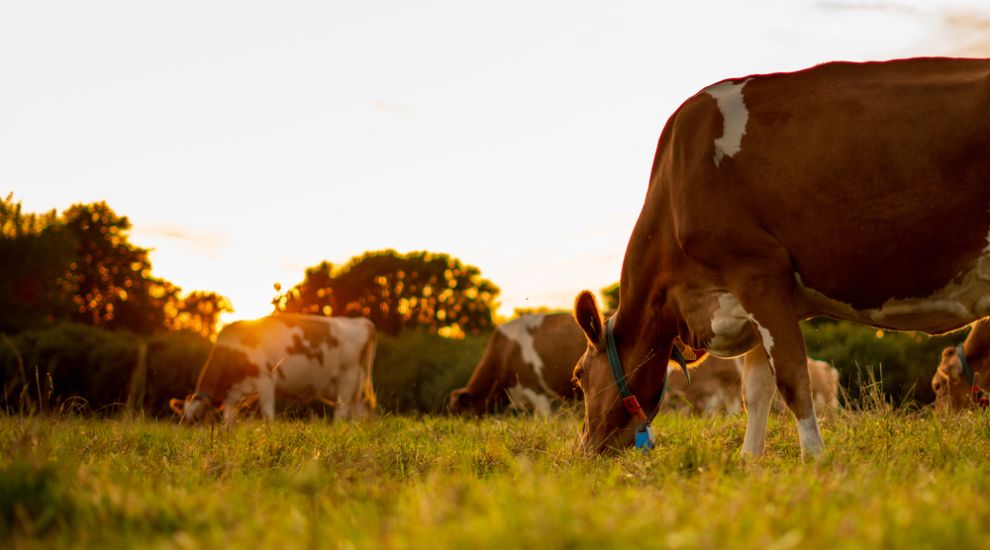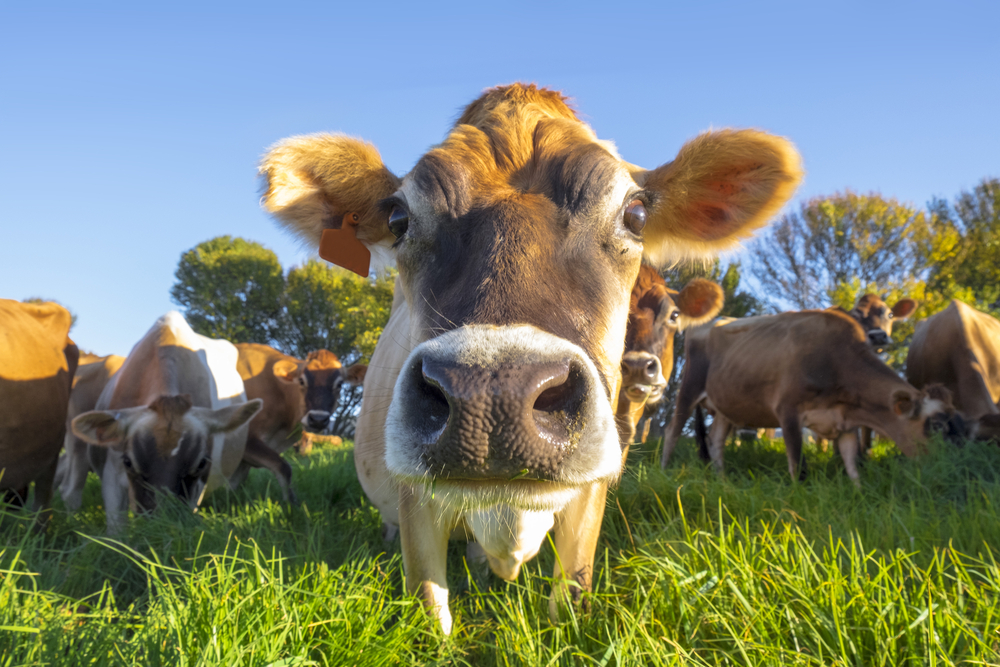


Farmers do have adequate arrangements for veterinary care, according to the President of Environment and Infrastructure.
Deputy Lindsay de Sausmarez was fielding questions from Deputy David de Lisle during this week’s States debate [19 June].
“Dairy farmers on this island require an island veterinary service. Farmers have no one to turn to in an emergency and they are being forced to put down valuable dairy cows when they are suffering,” Deputy de Lisle claimed.
“The main driving force behind updating the animal welfare legislation was to align with welfare standards in the UK, and other trading partners in a post Brexit context. We are in fact contravening all forms of ethical behavior and letting down one of the main agricultural industries on the island by not providing a professional vet service.
“With animal welfare standards in the process of being revised, what has been done by E&I for dairy farmers caught in an impossible ongoing veterinary service vacuum?”
In response, Deputy de Sausmarez said veterinary arrangements for farmers are private arrangements, as all island farms are private businesses.
“So the States of Guernsey has no direct remit regarding the supply of veterinary services.
“The Committee does however have the mandate for policy relating to farms, agriculture and animal welfare, as distinct from operational responsibility for farms themselves.
“Previously, livestock veterinary services were provided on island by a local practice and when that practice withdrew that provision officers were involved in conversations between relevant parties to facilitate dialogue and ensure that the necessary welfare standards in the dairy sector could be upheld.
“Deputy De Lisle’s suggestion that there is a veterinary service ‘vacuum’ is not in any way accurate. Veterinary Services are now provided to Guernsey dairy farmers by a specialist livestock veterinary practice in England, with the local veterinary practice on island providing assistance by storing equipment and medication, but specific island monthly and standard operating procedures exist for livestock emergencies, using telemedicine and upskilling of farmers.
“All of Guernsey's dairy farms are members of the RSPCA dairy assurance scheme which sets very high animal welfare standards, both the RSPCA and the Royal College of Veterinary surgeons are satisfied with the appropriateness and adequacy of Guernsey's current arrangements; States officers continue to work closely with local dairy farmers to ensure that the current and future animal welfare legislation can be complied with.”

She was pressed further by Deputy de Lisle, who suggested there should be a dedicated local livestock vet on island.
“Storage of equipment and medication on island does not align with welfare standards in the dairy sector in the UK.”
He was once again told that there “is emergency medical care available for dairy farmers and they do make use of it”.
A second question gave Deputy de Lisle the opportunity to suggest that E&I is being “medically negligent” by not ensuring Guernsey has a dedicated agricultural officer/professional who can tend to livestock in emergencies.
“As previously highlighted, it is not the responsibility of the Committee to provide veterinary services to a commercial sector,” continued Deputy de Sausmarez.
“The Committee has no plans to nationalise farms or their support services and does not believe that there will be support for that kind of approach within the farming community or this assembly.
“Officers have, however, worked closely with local dairy farmers and the veterinary practices and veterinary care provisions are in place.”
Comments
Comments on this story express the views of the commentator only, not Bailiwick Publishing. We are unable to guarantee the accuracy of any of those comments.